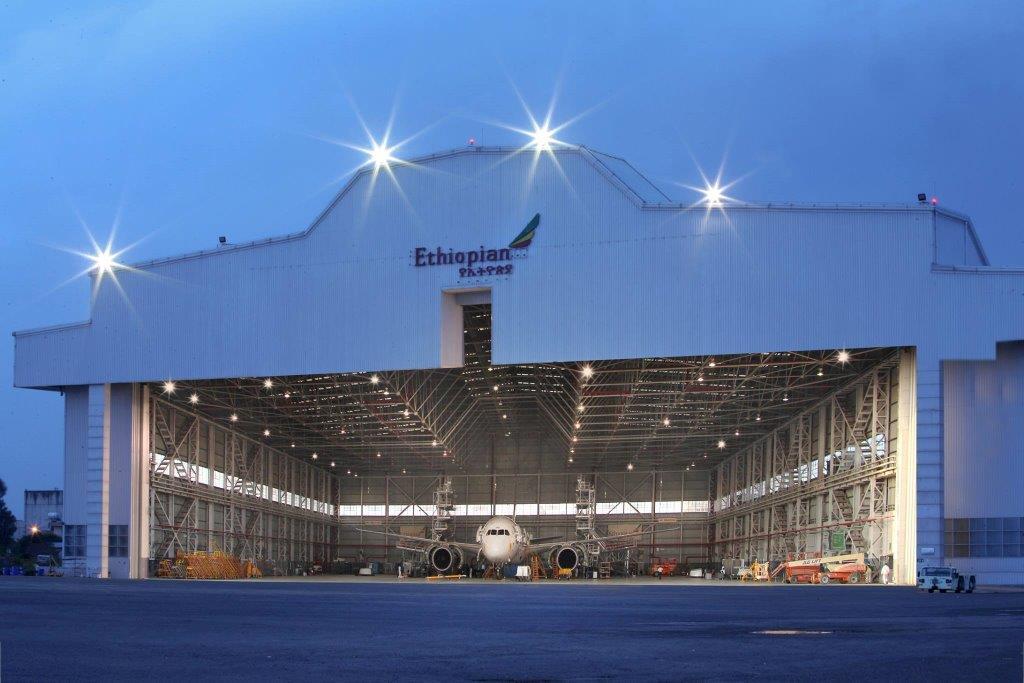
African scheduled flights were down 69% from pre-crisis levels in May, according to mba Aviation, a sharp decline but not as deep a slump as in Europe of Latin America.
Timothy Kuder, an aerospace industry analyst at Frost & Sullivan, thinks there will be plenty of aftermarket opportunity in Africa as the market recovers. “With South African out of business, Egyptair and Ethiopian Airlines are the only significant players,” Kuder argues.
Ethiopian is certainly eager to play a bigger role in the region’s MRO support. Its maintenance units does base, line, component and engine maintenance.
Four hangars support heavy checks on Boeing 737s, 767s, 777s and 787s as well as -Q400s. Engine shops can overhaul CFM56-3s and -7s and do modular maintenance on PW2000s and 4000s. Managers control all maintenance with a leading MRO IT system, IFS-Maintenix.
Spokesman Henok Sirak says Ethiopian’s maintenance division is seeing an increasing demand for maintenance for aircraft now grounded due to COVID 19 pandemic. “We are seeing interest from our customers on base maintenance like C checks and other lower checks,” Sirak notes.
So far, Ethiopian has provided maintenance services on than 40 aircraft from more than ten other airlines. The first kind of maintenance expected when traffic recovers is aircraft restoration for flight.
Fortunately, Ethiopian MRO has continued to operate and retained its more than 3,000 employees. Sirak acknowledges there have been shortages of part supplies worldwide as manufacturers shift toward production of life-saving medical supplies, and countries closed their borders during the pandemic. “And logistics of aircraft material is a challenge as cargo demand soared and passenger flight schedules were disrupted.
The logistics intermittency and unpredictability affects the steady flow of materials, aircraft maintenance being highly dependent on materials.”
Ethiopian has not requested or received any state bailouts during the slump, but has offered aircraft parking services and maintenance to preserve parked aircraft.
Longer term, the Ethiopian MRO has a Vision 2025 Strategic Plan to be the center of excellence for African aviation MRO needs. “We have extended our maintenance services to more than ten African countries where we positioned more than 120 technicians to provide aircraft line maintenance and minor modifications,” Sirak says.
The MRO is also working with EASA to become a design organization and thus develop aircraft modifications in-house. “We are collaborating with major OEMs like Boeing, GE, Collins, Honeywell, De Havilland and others to be their preferred and licensed maintenance base for airframe, engine and components.
Even during the pandemic, we have continued to provide our high quality service by applying all safety measures recommended by health and aviation regulatory bodies.”





